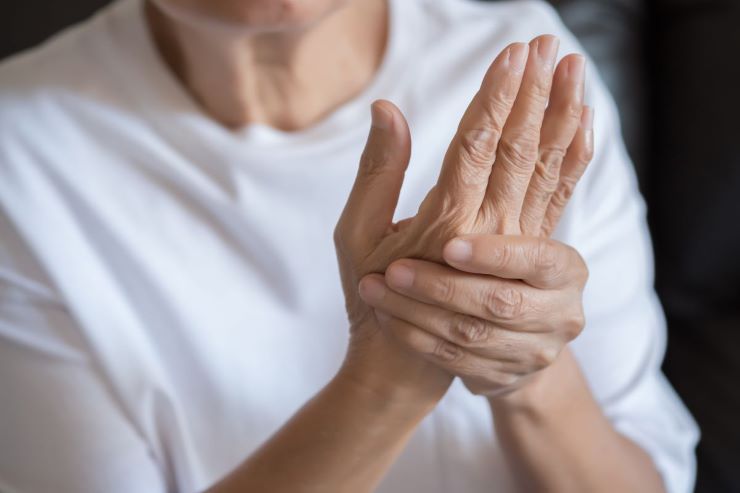Navigating Hip Discomfort: Causes, Signs, and Solutions
Discover the hidden world of hip pain affecting millions globally. From athletes to seniors, this common ailment can drastically impact daily life. Uncover the root causes, recognize key symptoms, and explore effective management strategies. Whether you're dealing with a persistent ache or sharp twinges, this comprehensive guide offers valuable insights to help you reclaim comfort and mobility.

Hip discomfort is a pervasive issue that can stem from various sources. While the original article began with an incomplete list, let’s explore a comprehensive overview of potential causes, symptoms, and management strategies for hip pain.
Common Causes of Hip Pain
-
Osteoarthritis: This degenerative joint condition often affects older adults, causing cartilage breakdown and joint inflammation.
-
Bursitis: Inflammation of the fluid-filled sacs (bursae) that cushion the hip joint can lead to pain and stiffness.
-
Hip fractures: Particularly prevalent in seniors with weakened bones, these injuries demand immediate medical intervention.
-
Tendinitis: Overexertion or trauma to the hip tendons can result in painful inflammation.
-
Labral tears: Damage to the hip socket’s cartilage ring may cause discomfort and joint instability.
Identifying the root cause of your hip pain is crucial for developing an effective treatment plan.
Recognizing Hip Pain Symptoms
Identifying hip pain symptoms is the first step towards seeking appropriate care. Be on the lookout for:
- Discomfort in the groin, outer hip, or buttocks area
- Limited range of motion or stiffness in the hip joint
- Difficulty walking or a noticeable limp
- Pain that intensifies with activity or extended periods of sitting
- Swelling or tenderness around the hip region
It’s worth noting that hip pain can sometimes be referred pain from other areas, such as the lower back or knee. If you’re experiencing persistent discomfort, consulting a healthcare professional can help pinpoint the exact source and nature of your pain.
Effective Home Remedies for Hip Pain Relief
While severe cases may require medical intervention, several home remedies can help alleviate mild to moderate hip discomfort:
- Rest and activity modification: Give your hip a break by avoiding activities that exacerbate the pain.
- Ice and heat therapy: Alternate between cold packs to reduce inflammation and heat therapy to relax tense muscles.
- Gentle exercises: Engage in low-impact activities like swimming or yoga to maintain joint flexibility and strength.
- Over-the-counter pain relievers: NSAIDs such as ibuprofen can help manage pain and reduce inflammation.
- Supportive devices: Consider using a cane or walker to minimize stress on the affected hip during daily activities.
Remember, these remedies are not substitutes for professional medical advice. If your hip pain persists or worsens, seek guidance from a healthcare provider.
When to Seek Medical Attention
While some hip pain may resolve on its own, certain situations warrant immediate medical attention:
- Severe pain interfering with daily activities or sleep
- Inability to bear weight on the affected leg
- Signs of infection (fever, redness, or warmth around the hip area)
- Pain accompanied by swelling or visible deformity
- Hip pain following a fall or injury, especially in older adults
Early intervention can prevent complications and improve outcomes, so don’t hesitate to consult a healthcare professional if you’re concerned about your hip pain.
Treatment Options for Chronic Hip Pain
For those dealing with persistent hip pain, various treatment options are available, depending on the underlying cause and severity:
- Physical therapy: Customized exercises and stretches to improve hip strength, flexibility, and function
- Medications: Prescription pain relievers, anti-inflammatory drugs, or corticosteroid injections for more severe cases
- Assistive devices: Canes, walkers, or hip braces to provide support and reduce joint stress
- Lifestyle modifications: Weight management and low-impact exercise routines to alleviate pressure on the hip joint
- Surgery: Procedures such as hip replacement or arthroscopy may be necessary for severe or persistent issues
Preventing Future Hip Pain
While not all hip pain is preventable, you can take steps to reduce your risk and maintain hip health:
- Maintain a healthy weight to minimize stress on your hip joints
- Engage in regular, low-impact exercise to strengthen muscles supporting the hip
- Practice good posture and ergonomics in your daily activities
- Warm up properly before physical activities and avoid overexertion
- Incorporate balance and stability exercises into your routine, especially as you age
By adopting these preventive measures and staying attuned to your body’s signals, you can work towards maintaining healthy, pain-free hips for years to come.
Hip pain, though common, doesn’t have to dictate your quality of life. By understanding its causes, recognizing symptoms, and exploring various treatment options, you can take proactive steps towards managing and preventing hip discomfort. Remember, your journey to hip health is unique, and consulting with healthcare professionals can provide personalized guidance tailored to your specific needs and circumstances.
This article is for informational purposes only and should not be considered medical advice. Always consult a qualified healthcare professional for personalized guidance and treatment.




